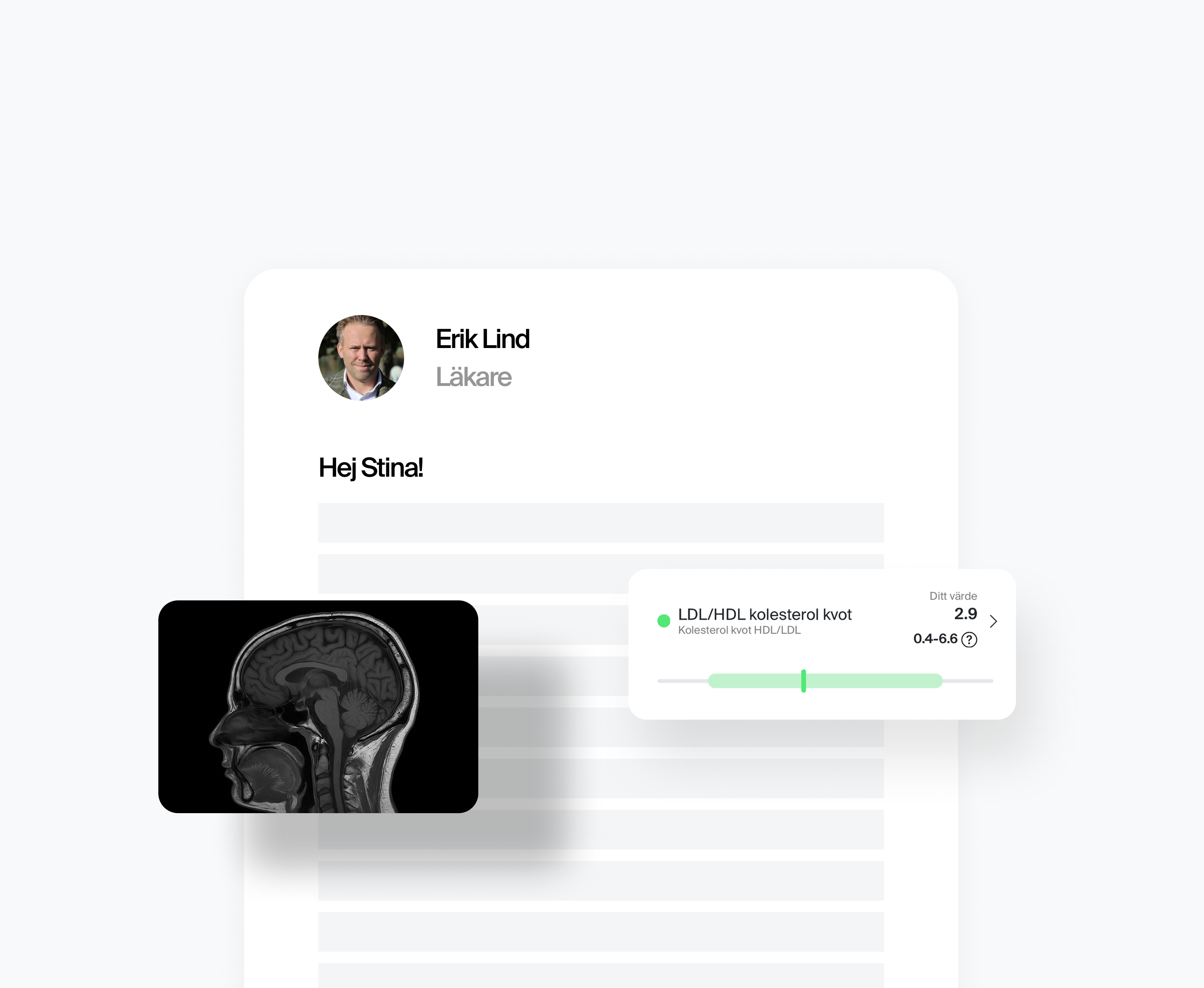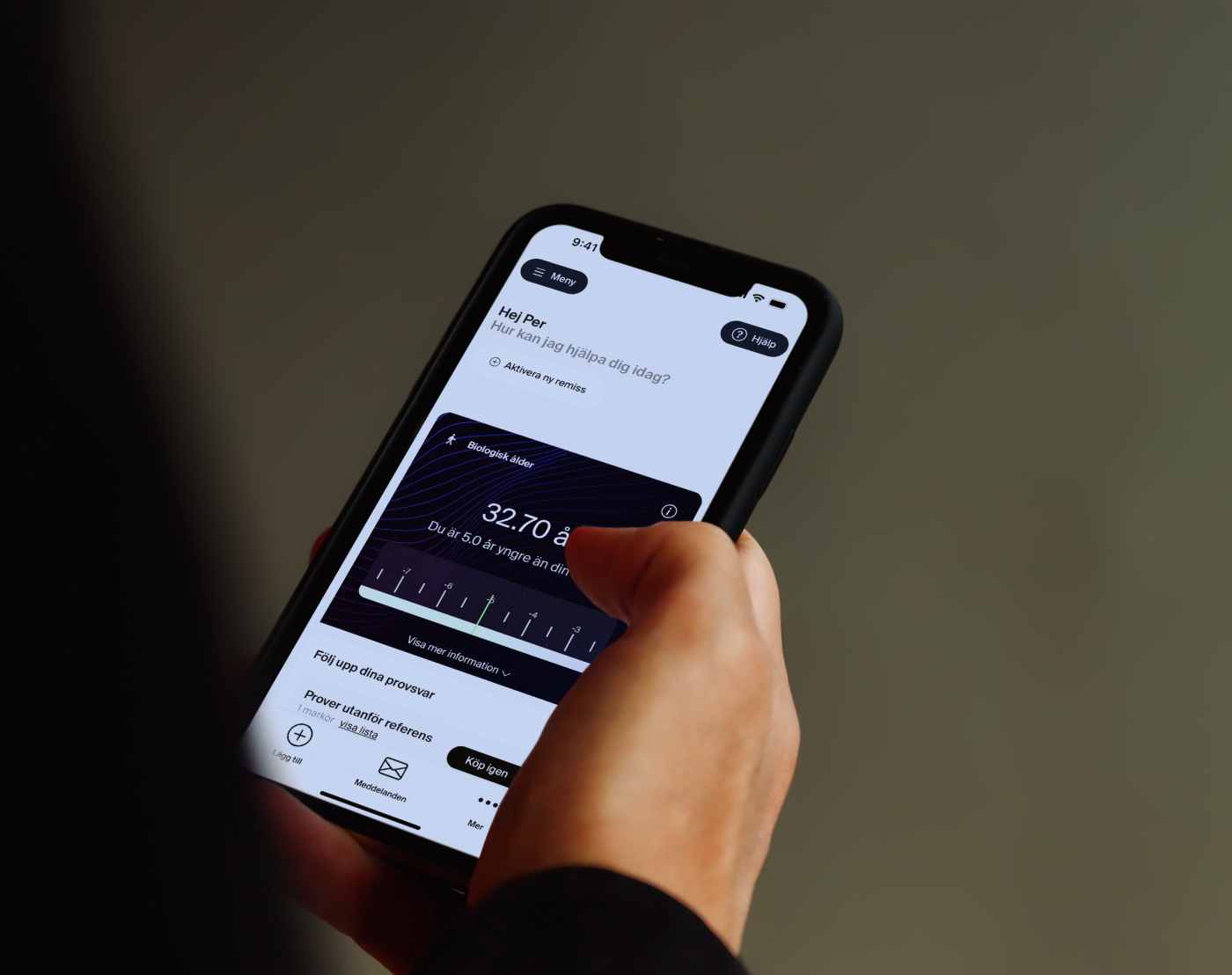
Cart
Sampling fee?
The sample collection fee is a fixed cost that refers to the visit to the clinic where you submit your sample. The fee is not affected by how many tests you have ordered, but varies depending on the order value:
- For order values under SEK 350, the sampling fee is SEK 119.
- For order values between SEK 350 and SEK 1 000, the fee is SEK 49.
For purchases over 1 000 SEK, the sampling fee is included.

Choose the screening package that suits you best
- Magnetic camera examination of the full body
- Recommended for those who are healthy for screening purposes
- Detailed examination with magnetic camera
- MRI full body, referral sent directly
19 995 kr
- Radiation-free whole-body MRI examination.
- 50+ blood tests for an extended medical overview.
- Early detection of risks and diseases.
21 000 kr
- Full body MRI scan.
- 70+ blood tests incl. biological age.
- Long-term ECG 5–7 days with ePatch.
23 900 kr
How does it work?
Screening is our best protection – and we've made it easy for you

Order and activate
- Add the screening you want to the cart and complete your order in just a few minutes.
- After payment, you will receive an email with instructions.
- Log in to fill in your details and activate your referral request.
- Within 24 hours, you will be contacted by our doctor or medical team for a referral consultation.
- During the consultation, we confirm your booking and ensure that the correct examination is ordered based on your wishes and needs.

Conduct survey
- After placing your order, you will receive an MRI appointment via Kivra or by post within 7–10 business days.
- You book your blood tests yourself at a clinic that suits you – often located close to the radiology department.
- If your package includes an ECG, a kit will be sent to your home with simple instructions.

Results
- Your MRI images are reviewed and interpreted by a radiology specialist within 5–7 business days. The report is then assessed by our doctor.
- Blood tests are analyzed and interpreted as soon as all results have been received, usually within 1–5 business days.
- If your package includes an ECG, the results are interpreted by a cardiologist once the device has been returned to us.
- You will then receive a comprehensive feedback report on your entire examination.
- If any abnormalities are detected, you will receive clear guidance and support from a doctor – including referral if necessary.
Find a reception near you

This is included in the full body screening


Erik Lind
Lead Physician
Discover your biological age
When you choose the MRI and blood test package, you will also find out your biological age. This is an important marker of long-term health and can give you guidance on how to adjust your diet, exercise and lifestyle to feel better both now and in the future.
Select your MRI
Frequently asked questions and answers about full-body check
You can access your MRI images via your healthcare provider's patient portal. A medical report is also provided in Zample's test response service.
Read moreBefore your MRI scan, you will need to inform your doctor about implants, remove metal objects, and be able to lie still for 30–60 minutes. Read what is important to consider.
Read moreAn MRI scan involves you lying still in a magnetic camera that takes very detailed images of the inside of your body – completely without radiation or discomfort.
Read moreMRI of the brain shows detailed images of brain tissue, vessels and nerves – for example in cases of headache, dizziness, stroke, tumor or inflammation.
Read moreWhen you activate your MRI referral, it is sent immediately, and you will usually receive a summons from the clinic within 3–7 working days – without unnecessary waiting time.
Read moreYou are always in contact with staff during the MRI. If you panic, the examination can be paused or interrupted – safety and calm always come first.
Read moreDuring an MRI, you are not allowed to wear any clothing or objects with metal. You will usually change into hospital clothes. You do not need to take off your underwear.
Read moreAn MRI usually costs between 3,500 and 6,000 SEK depending on the area. We offer Sweden's most affordable MRI - with referral and specialist opinion.
Read moreIf findings suggest illness, you will receive a medical review with the responsible physician. We will help you with further advice and referrals if necessary.
Read moreYou will normally receive a response within 2–5 working days after your MRI. The response time depends on the workload, number of areas and what is being analyzed.
Read moreYes, it is usually fine to have an MRI if you are claustrophobic. We take extra care and there are options such as an open camera or sedative medication.
Read moreIt is often possible to have an MRI with implants, but it depends on the type. You will be asked to fill out a safety form before the examination.
Read moreYes, osteoarthritis can be seen on an MRI. The examination shows cartilage loss, synovial fluid and other changes that are not always visible on a regular X-ray.
Read moreYes, MRI can show tumors and suspicious changes. It is often used in cancer investigations of, for example, the brain, prostate or abdominal organs.
Read moreMRI and MRT are the same type of examination – magnetic resonance imaging. The difference is only in the language and the name, not the technique.
Read moreAn MRI scan produces sounds between 80–110 dB. You will be given hearing protection or headphones – the sounds are harmless but may be perceived as loud.
Read moreMost MRI scans take 15–45 minutes. The time in the MRI scanner depends on the area being examined and how many images are taken.
Read moreYes, MRI requires a referral – but we issue it. After booking, you activate the referral digitally, select a reception and answer a few questions.
Read moreMRI is a safe and radiation-free examination. It is not dangerous but may require extra consideration if you have metal implants or severe claustrophobia.
Read moreMRI contrast agents are used to more clearly show, for example, tumors, inflammation or blood vessels. This gives the doctor a better opportunity to make the correct diagnosis.
Read moreAn MRI scan usually takes 15–45 minutes, depending on what is being examined. For multiple areas or contrast media, the time may be slightly longer.
Read moreAn MRI scan shows detailed images of the brain, joints, internal organs and nerves – and is used to detect injuries, diseases and other changes in the body.
Read moreMRI is a radiation-free examination using a magnetic resonance imaging (MRI) camera that creates detailed images of the inside of the body – often used for injuries, diseases or symptoms.
Read more



















